Table of Contents
Brad Mehldau – Anthropology (Solo Transcription sheet music)
Brad Mehldau

Brad Mehldau is one of the most respected and important musicians on the jazz scene, not only in North America, but also worldwide. He is recognized as one of the great figures of the piano, and has ceased to be the great promise that was held over him, showing off a bulky record label as leader, where recordings with his trio predominate, with a first formation made up of Larry Grenadier and Jorge Rossy, to move to a consolidated group with the same double bass player, but with the change of the Catalan drummer, for that of Jeff Ballard.
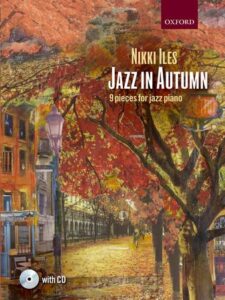
Likewise, he has several solo recordings, some of them of great interest, not only musical but also intellectual. Mehldau has participated in countless recordings as a guest artist or sideman, with some of the best jazz musicians; among others we mention Joshua Redman, Pat Metheny, Charles Lloyd, John Scofield, Lee Konitz, Charlie Haden, Kurt Rosenwinkel or Michael Brecker; and even he came to compose the wonderful and very little appreciated (as well as very little known) soundtrack, “Ma femme est une actrice”.
There is no doubt that the trio line-up is the group in which Mehldau, by nature, feels more comfortable on a musical level, with the particularity that when the recordings of their line-up appeared, they came to be named with the pretentious title of “ The art of the trio” (The Art of the trio).
Thus, they distanced themselves from a good number of important formations that throughout the history of jazz have left their musical mark, and as if with it they wanted to make things clear from a good start. Critics have consistently and repeatedly compared Mehldau to one of the greatest pianists of all time, Bill Evans, and more specifically to his trio. Mehldau has always been uncomfortable with these comparisons.
On the part of specialized critics, which makes us wonder, how is it possible that a musician today can be abstract from the entire great tradition of American piano in jazz, from Bud Powell, Bill Evans, through McCoy Tyner to Keith Jarrett, just to name a few? The answer is easy and simple: it is impossible.
But Mehldau’s musical conception since the beginning of his trio, and of the five volumes of his “Arte del trio”, has evolved in a clear and ostensible way, remaining reflected in all the projects in which he participates. But what very few fans have realized is that Mehldau tries to unfold his thoughts and musical ideas through very different stylistic formats, formats that allow him to explore and unleash the enormous creative flow that Mehldau carries within him.
This is what has happened with the duo formation, where the American pianist has been exposing his creative stimuli, which has allowed him to gather a good number of recordings, some of them as accompanist and others as leader.
In these duet recordings, various interesting aspects to take into account and worth highlighting can be appreciated. In all of them, due to the type of reduced training involved, there is ample space for the pianist to develop new ideas and concepts. On the one hand, some of them are perfectly recognizable from his most personal style, specifically, his taste for melody and for intimate atmospheres with a clear romantic tendency.
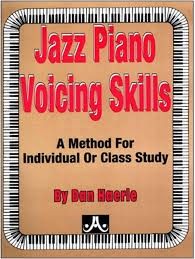
On the other, the existence of a strong musical empathy with the accompanying musician.
And finally, the experimentation of new ways of stylistic expression according to the different instruments that accompany it (tenor sax, piano, double bass, voice, guitar or mandolin), and mainly, a lot of music to discover and rediscover, and in addition to enjoy.
The first duo participation reflected at the disco graphic level can be found in the recording “Close Enough for Love” (Universal, 1994), where he accompanies the Dutch vocalist Fleurine (his wife). This recording produced and arranged by Brad Mehldau and Fleurine (and it could be said that, taken care of down to the smallest details, given that the pianist himself is in charge of the arrangements of the string section that participate in three songs, as well as the choice of the repertoire to be performed), reflects what Mehldau’s musical meanings will be in the future, and specifically a profound musical point of view in his performances.
In the first place, his taste for themes from pop, rock and classical music. Secondly, his singular style when interpreting particular and instinctive. In third place, the conception and development of simple and repetitive ideas throughout the performance that are changed and reworked (this causes you to play a note or succession of notes with one hand, to then improvise freely with the other, and that entails As a final result, a conjunction of ideas that, depending on the tone of the composition, can be romantic or full of melancholy).
Fourth and last, we must highlight the introspective and romantic vision, as well as the deployment of the technique of independence of hands, more typical of a classical pianist than of a jazz musician, which entails a virtuoso and precious skill like few others. Sometimes brings out a jazz pianist (except for Keith Jarrett).
On this recording, Fleurine and Mehldau perform songs by R. Davies and Roger Hodgdon (members of the group Supertramp), by Jimi Hendrix, Antonio Carlos Jobim, Michel Legrand, Pat Metheny (the classic song “Better days ahead” from the album A Letter from Home) and various songs by the pianist himself, where Fleurine puts lyrics to them (the Elegiac Cycle album and another entitled Songs).
The interesting thing about these interpretations is to perceive the intimate character of the themes developed (with a Fleurine who is more than correct in the different languages she interprets, Portuguese, English or French), the overflowing personality of the pianist both in the moments in which he plays alone and in the accompaniment of the singer, always linked to the triumph of the melody.
This first duet recording with a female vocalist will lay the foundations for the various collaborations in this type of format. The intervention with Fleurine would be repeated on his next recording Fire, but this time Mehldau’s participation was limited to a contribution to several songs, but without reaching the interesting results achieved with the other recording.
The following duo collaboration is the one starring Joel Frahm with saxophonist Joel Frahm with Brad Mehldau, Don’t Explain (Palmetto Records, 2004), an album due to strange circumstances quite unknown by fans, but with interesting musical approaches by the part of Mehldau.
This recording was born as a result of the friendship that both musicians have professed since they were 15 years old, a circumstance that means that they know each other perfectly, due to the experiences, studies and performances that they carried out together since they were young, which finally made it possible for in 2001, they could enter a recording studio, to carry out this project.
The first thing we notice about this collaboration is that, of the ten songs recorded, there is only one song authored by the saxophonist, while the rest are standards and songs by T. Monk (specifically, two versions of Round Midnight), by S. Rollins (Oil), or by O. Coleman (Turnaround).
The music obtained from the songs performed is perceived as detached, dark at times, with passages of free improvisation, but with certain doses of swing. Faced with so much space to create music, Brad Mehldau multiplies himself, alternating between the times of soloist, accompanist of the saxophonist or as the operation of a complete rhythm section.
The pianist that can be heard on this recording is less melodious than what fans know, instead using large doses of experimentation and expressiveness. This duet recording with saxophonist Joel Frahm allows you to discover facets that are very different from Mehldau’s usual ones, and to enjoy a free musician to create musical dissonances and textures.
Another noteworthy duo collaboration is the one starring Brad Mehldau on Polish double bassist Darek Oleszkiewicz’s debut album, Like a Dream (Cryptogramphone, 2004). On this occasion, the five opening tracks on the album are developed exclusively with the American pianist.
The repertoire chosen for this recording is very different from the previous one, all the songs that are performed are original by Oleszkiewicz except for You don’t know what love is. For this recording, Mehldau presents himself as the perfect partner for the double bass player, who starts from some exquisite compositions, with clear romantic atmospheres, where the melodic and lyrical lines (with a certain melancholic air) are the protagonists of the musical development that is obtained.
In this context, Mehldau finds himself like a fish in water, allowing a conversation as equals with his partner, and where each of the two musicians participates in the improvisation that takes place, offering as a final result an organic ensemble, where sensuality, lyricism and melody triumph unquestionably.
Of the collaboration that Brad Mehldau has had throughout his musical career with various double bass players, one especially fruitful (mainly in the trio format) should be noted, that of Larry Grenadier. With this double bass player he has played in various contexts which has allowed him to collaborate in a duo format.
To comment on this mutual collaboration, it is necessary to resort to the pirated discography of Brad Mehldau (popularly known in its English meaning as bootlegs). Any good fan of the pianist will be aware of the extensive and large pirate discography of the same, and to his despair in all kinds of formats, solo piano, duets, trios and quartets.
Within this extensive sea of recordings there is one of special interest, it is the recording of a concert held in the German city of Cologne, on April 28, 1999; specifically the duo formed by Brad Mehldau and Larry Grenadier.
The music that makes up this concert is particularly vigorous, Grenadier is a musician who is generous in his interpretation and who does not settle for a role of mere accompanist, quite the contrary; to contribute with powerful musical phrases, many of them very elaborate, which provides an enormous flow of ideas that serve as a base (or, depending on the moment, as a complement) to Mehldau, to build his own dialogue.
Mehldau’s piano on this recording is demanding, battle-hardened and complicated, not only when he acts as a soloist, but also as an accompanist; deploying great interpretive resources, with a powerful sound that is at times repetitive and obsessive (characteristic of the ‘Mehldau style’), full of improvisations and where one of its most personal features, such as the melody, is replaced in many moments for a fluid, overwhelming and very powerful performance (just listen to the song “London Blues” as an example).
All this makes the Mehldau and Grenadier duo become an empathic, vertiginous and demanding conversation, which entails and demands from the fan, an attentive and precise listening, in order not to lose detail about the music that both musicians extract. A sound document that is well worth looking for, despite the difficulty that this will entail, but that, like any precious treasure, will offer a good reward.
It is in recent years, where the creative genius of Brad Mehldau has been squeezed to the fullest, he has participated in several projects as a duo of considerable relevance, one as leader, together with Renée Fleming, and another as co-leader (together with Pat Metheny).
For the first of them, starting from a completely different conception than the previous projects mentioned, Mehldau embarks on a recording that very few musicians today are in a position to carry out. An album conceived without jazz attitudes, without improvisations, a work in terms of cultured music, both in form and content. Interesting if not spectacular, the album published by Brad Mehldau with the collaboration of the American soprano Renée Fleming, (Brad Mehldau and Renée Fleming, Love Sulime –Nonesuch, 2006-).
It must be stated at the outset that listening to this album is not easy for fans of the pianist, and surely, more than one Mehldau follower will find themselves, to say the least, surprised as well as overwhelmed by his creative facet. For this recording, Mehldau has prepared a musical and vocal repertoire that can be framed within classical and contemporary aesthetics. Classical, due to the musical approach used of the piano and the voice, and that in some way recalls the musical form of the German lied.
And contemporary, due to the (sometimes inaccessible) treatment of the piano, closer to the line of the Second Vienna School (in which Arnold Schönberg, Alban Berg and Antón Webern played a fundamental role), although with a much more focused on the use of tonality than on the use of different and changing chords to which Mehldau has accustomed us.
Given this approach, the bulk of this recording is made up of some themes based on the poems of the German poet Rainer Maria Rilke The Book of Hours: Love Poems to God. Along with these songs, we find the addition of another three, based on the poems of the American writer Louise Bogan The Blue Estuaries, to end with a theme written by Mehldau’s wife, Fleurine, and which gives the work its title.
The music that accompanies these poems is composed by Mehldau himself, finding his creative support romantically typical of musicians such as Schubert, Schumann, Beethoven and even Brahms (one of the authors that the American pianist most admires and whom he has resorted to on many occasions in his solo piano concerts).
It is in the poems of Rainer Maria Rilke where we can appreciate the richest and most creative part of this project (and from whom he already used material for his first piano album only Elegiac Cycle), where we can appreciate minimalist moments with a strong religious burden as the theme Your first Word was Light, circumstance is produced by the interpretation based on Mehldau’s piano chords together with a dark and bleak interpretation of the soprano Renée Fleming, which confer a somewhat gloomy and tortuous reading, but very interesting.
It is also possible to appreciate the most recognizable Mehldau at a rhythmic-harmonic level in the song I Love the dark hours of my being, in the clearest style of Nick Darke’s song Things Behind The Sun, or on the contrary clearly expressionist influences, which allow the soprano interpretations with a strong emotional charge, deep, full of feeling and with a diction, at times crystalline.
As regards Brad Mehldau’s interpretation, it should be noted that throughout the recording, he demonstrates a seductive technique, devoid of the jazz approaches that are known to him, full of tonalities or chords, which demonstrate a composition of the themes by very structured moments, but not devoid of certain melodic or rhythmic moments, but with an evident contrast between the melodic simplicity and the expansion interpretation.
The record work closes with the most conventional theme of all those that are performed (Love Sublime), and therefore the most recognizable of Mehldau’s piano style, with a beautiful and provocative musicality, and with certain doses of improvisation. Finally, in reference to this duet work, it should be noted that Mehldau’s creative impulse goes beyond the music created or performed, and therefore the art or artistic work that he performs is the result of a state of risk within the reach of very Few artists today, and that clearly demonstrates that he is in a creative stage very different from that of other musicians.
Of the duet collaborations with singers, it is also worth mentioning, albeit by way of example, the one carried out with Anne Sofie Von Otter Love Songs (Naïve, 2010) and that, as the title and credits of the same indicate, it is a work which is dedicated and inspired by the love theme of the songs. With two well-differentiated compacts, the first is made up mainly of poems by Sara Teasdale with music by Mehldau, and a second compact based on a repertoire of classical and modern themes.
One of the most relevant collaborations in duo format was the recording made with Pat Metheny, Metheny/Mehldau (Nonesuch, 2007). This collaboration, both expected and desired by many fans, stems from a mutual admiration of each musician, and from a deep knowledge of the musical work of each one (a good reflection of this, are the comments that we can read from both Mehldau and Metheny in the inner folder of the compact).
This record work is made up of ten songs, two of which are with the rhythm section of the pianist’s trio -Larry Grenadier and Jeff Ballard-, although the primary and important part is the duet work made between pianist and guitarist.
The compositions that both Metheny and Mehldau contribute to this project demonstrate the musical world that each one has expressed individually throughout his career, it being important to highlight that the union of these two styles is not carried out in a clear-cut or forced way (circumstance that sometimes causes the personality of one of the musicians to be erased or weakened, to the point of not being recognizable), but they have been perfectly harmonized, with the ultimate goal of achieving as a result the realization of a creation sophisticated, highly creative and expansive, with an at times telepathic interconnection.
Within these approaches, it is important to point out the special internal rhythmic treatment that each composition has, and that allows each musician to participate and provide ideas to his partner, and not go against the music performed.
For this project, Mehldau displays his best interpretive weapons, and specifically a musical download full of sensitivity, lyricism and good taste, a sophisticated touch in the way he plays the piano, as well as a rhythmic interrelation with Pat Metheny that is difficult to achieve with other musicians. , which provides music that is enjoyed immediately, and that will force the fan to listen carefully and repeatedly to it.
Also, worth mentioning within the duet performances starring Brad Mehldau is the compact publication of Marian McPartland’s Piano Jazz series, Piano Jazz McPartland/Mehldau (Concord Music, 2007), taken from the National Radio program. It should be noted that in this series of recordings presented by the British pianist Marian McPartland, she converses with the guest musician and performs various performances.
In this case, the guest is Mehldau, and the conversation allows us to talk about the pianist’s career, as well as his influences (both classical and jazz). On this recording (which dates back to 1996) there are three songs performed as a duet between Mehldau and McPartland, Stella by Starlight, I see your face before me and No particular blues (the latter, co-authored by the two pianists).
Despite the antiquity of this recording, the duet performance with two pianos, while not exalted, is not without its interest. The interpretation of these themes is carried out from an excessively academic and traditional point of view, without much ornamentation and musically supporting each other. Without being these interpretations nothing spectacular, on the contrary they demonstrate an experimental vision on the part of Mehldau, which has been outlined and increased over the years.
Of the latest projects that Mehldau has led as a duo, the following should be noted in chronological order: Brad Mehldau and Kevin Hays, piano duo, Modern Music (Nonesuch, 2011); Brad Mehldau and Mark Guiliana, piano and drums duo, Mehliana-Taming The Dragon (Nonesuch, 2014); the one by Joshua Redman and Brad Mehldau, sax and piano duo (Nonesuch, 2016), and the last and most recent one by Chris Thile and Brad Mehldau, mandolin and voice with piano (Nonescuh, 2017).
As can be seen, Brad Mehldau’s musical and creative interests are diverse and highly heterogeneous. In Modern Music, Mehldau signs, together with his pianist friend Kevin Hays, a recording with a strong intellectual charge, a musical banquet thanks to the compositions of Patrick Zimmerli, the pianists themselves and North American composers of the minimalist movement, Steve Reich and Philip Glass, as well as Ornette Coleman’s famous composition Lonely Woman.
On the contrary, in Mehliana-Taming The Dragon the American pianist presents a totally different proposal (starting with the cover of the compact) from what has been heard to date, mainly because electronics are used as a musical catalyst for creativity, which is a sharp and explicit turn only at the height of the greatest creators.
This turn that Mehldau carries out is not a posture or a mere whim, but a perfectly thought out and prepared project, where the traditional piano is left aside as the main instrument (despite the fact that it is included in the project, although very diluted) and takes as an expressive element the synthesizers and the Fender Rhodes.
For this project he has a collaborator whom he knows perfectly and with whom he has played on a considerable number of occasions, drummer Mark Guiliana, a musician accustomed to projects with a certain creative and sonorous depth and completely removed from traditional approaches.
In fact, over the last two years these musicians have been performing live giving shape to this project until finally it was crystallized and embodied in a recording.
Of the most recent projects in the formation of a duo that appeared on the record market by Mehldau (and in which, curiously, he appears as co-leader), those of Joshua Redman and Chris Thiele, it is necessary to point out the enormous creative commitment that they give off, having to specify that these have seen the light after countless live concerts over the years, which has led to the projects taking shape and autonomy of their own.
In fact, the CDs contain songs from live performances and do not come from sessions carried out in recording studios, which in some way suggests the strong involvement that has been carried out in them. In Joshua Redman’s it should be noted that the performances emanate a deep musicality product of the human relationship between both musicians (it should be noted that they profess a personal friendship that comes from many years ago), since they are not only limited to playing and broadcasting musical notes, but there is a mutual listening, a challenge, a musical challenge to extract from your partner all the best you can give.
This is achieved through a deep empathy that is the fruit of many years of work and, above all, of a sincere friendship. On the contrary, the recording with Chris Thiele is radically opposite and very unequal as it presents two completely different musicians and far removed from the styles that both develop, the virtuoso of the mandolin, the bluegrass and vocalist Chris Thile, and the jazz pianist Brad Mehldau.
With his duet performances, Mehldau intends to acquire a position much more distant from the music or from the performance itself, and where the very act of musical performance is beyond his own instrument, having a vast space to develop his ideas, and where silence, space and music are part of a whole that serves as expression.
Brad Mehldau with all this unites creation and dialogue; dialogue between the accompanist and the piano, but above all a dialogue with himself, with his own personality, with his own idiosyncrasy, and that allows him to place himself far ahead of other musicians.
Best Sheet Music download from our Library.
Browse in the Library:
| Artist or Composer / Score name | Cover | List of Contents |
|---|---|---|
| Alan Silvestri The Avengers |
 |
Alan Silvestri The Avengers |
| Alan Walker – Faded |
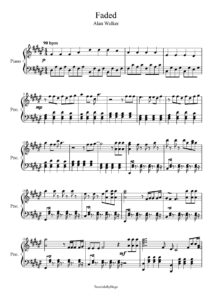 |
|
| Alan-Menken – Enchanted (Disney) |
 |
Enchanted Piano Vocal Guitar |
| Alanis Morisette – Hand In My Pocket | ||
| Alanis Morisette – Hands Clean | ||
| Alanis Morisette – Ironic | ||
| Alanis Morisette – Thank You | ||
| Alanis Morisette – That I Would Be Good | ||
| Alanis Morisette – Uninvited | ||
| Alanis Morisette – You Oughta Know | ||
| Alanis Morrissete You Oughta Know Sheet Music |
 |
|
| Alban Berg – Schliesse Mir Die Augen Beide (Musescore File).mscz | ||
| Alban Berg – Schliesse mir die Augen beide (Piano and voice Noten) |
 |
|
| Albeniz Isaac – Tango In D – Para Piano | Albeniz, Isaac – Tango In D – Para Piano | |
| Albeniz For Acoustic Guitar with Audio MP3 by Laurindo Almeida |
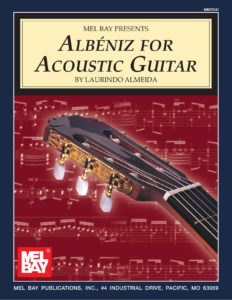 |
Albeniz for acoustic guitar with audio MP3 |
| Albeniz Suite Española V (Musescore File).mscz | ||
| Albéniz, Isaac – Capricho Catalán (Op. 165 no. 5) (Guitarra – Guitar) |
 |
|
| Albéniz, Isaac – Capricho Catalán (Op. 165 no. 5) (Piano) |
 |
|
| Albert Ammons 5 Boogie Woogie Piano Solos Sheet Music |
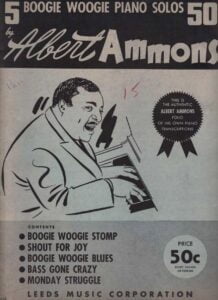 |
Albert Ammons 5 Boogie Woogie Piano Solos Sheet Music |
| Albert Ammons – Boogie Woogie Stomp |
 |
|
| Albert Ammons – Monday Struggle | Albert Ammons – Monday Struggle | |
| Albert Ammons – Shout For Joy | Albert Ammons – Shout For Joy | |
| Albert Ammons – Swanee River Boogie Woogie |
 |
|
| Albert Harris Sonatina Guitar Solo |
 |
|
| Albert Harris Variations And Fugue On A Theme Of Haendel (Guitar) |
 |
|
| Albert King The Very Best Of Albert King (Guitar TABs) |
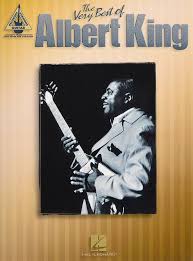 |
Albert King The Very Best Of Albert King |
| Albert Lee – The Best Of Albert Lee Guitar Tabs |
 |
Albert Lee – The Best Of Albert Lee Guitar Tabs |
| Albinoni – Adagio (Piano Solo Version) |
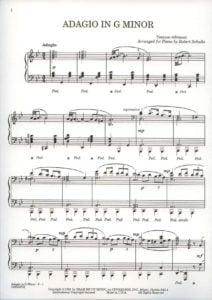 |
|
| ALBINONI-Adagio |
 |
|
| Album of Russian piano music | Russian music 1 | Russian music 2 |
| Album Of Scandinavian Piano Music By Louis Oesterle Vol. 1 (25 Pieces) 1902 |
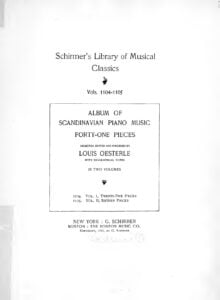 |
Album Of Scandinavian Piano Music By Louis Oesterle Vol. 1 (25 Pieces) 1902 |
| Alegre Magín – Americana (Guitarra) Habanera (Musescore File).mscz | ||
| Alegria Cirque Du Soleil Piano Vocal Guitar Chords Sheet Music |
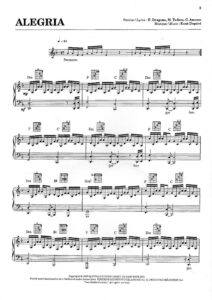 |
|
| Alejandro Sanz – Amiga Mia | ||
| Alejandro Sanz – La Margarita Dijo No | ||
| Alejandro Sanz – Y Si Fuera Ella | ||
| Aleksander Vertinskiy songbook |
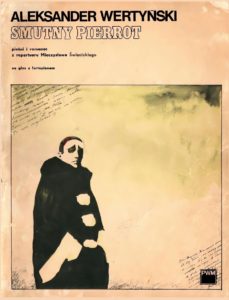 |
Aleksander Vertinskiy songbook |
| Alex North – Spartacus Love Theme (piano sheet music) |
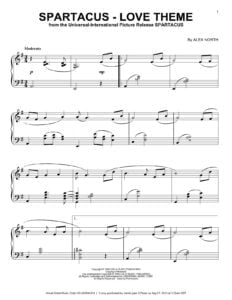 |
Alex North Spartacus Love Theme |
| Alex North Spartacus Love Theme (Lead sheet) | Alex Norrth SpArtacus | |
| Alexander Scriabin 24 Preludes Op. 11 1 To 12 Musescore File.mscz | ||
| Alexander’s Ragtime Band by Irving Berlin (Emma Carus) |
 |
|
| Alexandra Streliski Burnout Fugue |
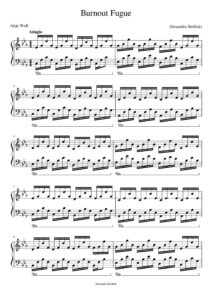 |
|
| Alexandra Streliski Le Noveau Dèpart |
 |
|
| Alexandra Streliski Par La Fenêtre De Théo |
 |
|
| Alexandra Streliski Plus Tôt |
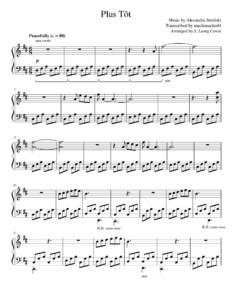 |
|
| Alexandra Strevisky Pianoscope |
 |
Alexandra Strevisky Pianoscope |
| Alexandre Desplat Elisas Theme Piano from The shape of water |
 |
|
| Alexandre Desplat The Shape Of Water Main Theme |
 |
|
| Alexandre Desplat – Lust Caution |
 |
Alexandre Desplat – Lust Caution |
| Alexandre Desplat – The Imitation Game |
 |
|
| Alexandre Desplat – The Meadow New Moon Piano solo Sheet Music |
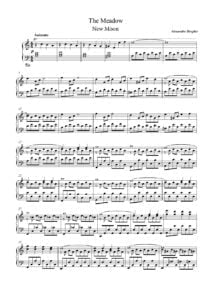 |
|
| Alexandre Desplat Almost A Kiss (From The Film New Moon) |
 |
|
| Alexandre Desplat and Lang Lang Kitty,s Theme from The Painted Veil | Alexandre Desplat and Lang Lang Kitty,s Theme from The Painted Veil | |
| Alexandre Desplat Brunos Theme From Suite Fran?aise |
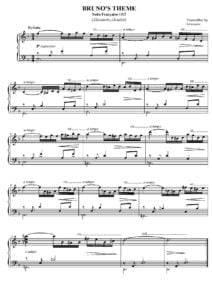 |
|
| Alexandre Desplat Full Moon (From The Film New Moon) |
 |
|
| Alexandre Desplat My Week With Marilyn – Marilyn’s Theme |
 |
|
| Alexandre Desplat Ost Godzilla Main Theme |
 |
|
| Alexandre Desplat The Danish Girl Theme Piano Solo |
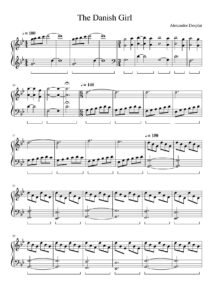 |
|
| Alexandre Desplat The Imitation Game |
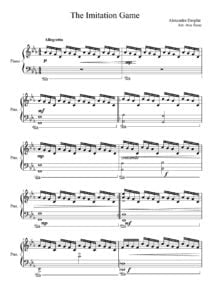 |
|
| Alexandre Desplat The King Speech |
 |
Alexandre Desplat The King Speech |
| Alexandre Desplat The Power Plant from Godzilla |
 |
|
| Alexandre Desplat The Wonder Of Life |
 |
|
| Alexandrov Piano Works Vol I |
 |
|
| Alexandrov Works for Piano Vol II |
 |
|
| Alexandrov Works for Piano Vol III Sonatas |
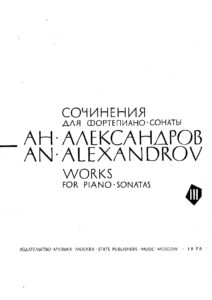 |
|
| Alexandrov, Anatoly 6 Preludes For Piano Op. 1 (1961) |
 |
|
| Alexis Ffrench – Bluebird |
 |
|
| Alfred Basic Adult Christmas Book Level 1 |
 |
|
| Alfred Basic Repertoire Level 4 |
 |
|
| Alfred Brendel A Pianists A-Z A Piano Lovers Reader Book |
 Andrew Hill 21 Piano Compositions Andrew Hill 21 Piano Compositions |
|
| Alfred’s Basic Adult Piano Course Level 1 |
 |
Lessons Alfred’s Basic Adult Piano Course Level 1 |
| Alfred’s Basic Adult Piano Course Level 2 |
 |
Lessons Alfred’s Basic Adult Piano Course Level 2 |
| Alfred’s Basic Adult Piano Course Level 3 |
 |
Lessons Alfred’s Basic Adult Piano Course Level 3 |
| Alfred’s Basic Piano Level 2B |
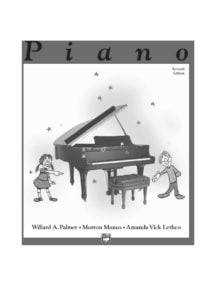 |
|
| Alfred’s Basic Piano Level 4 Jazz Rock Course |
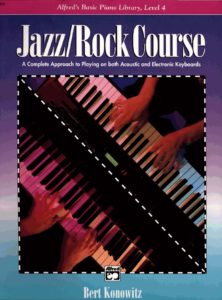 |
|
| Alfred’s Basic Piano Library Essentials Of Jazz Theory Book 2 |
 |
Alfred’s Basic Piano Library Essentials Of Jazz Theory Book 2 |
| Alfred’s Basic Piano Library – Solo Book Complete Levels 2 & 3 for the later beginner |
 |
Alfred’s Basic Piano Library – Solo Book Complete Levels 2 & 3 for the later beginner |
| Alfred’s Basic Piano Library – Top Hits! Solo Book – Level 4 |
 |
|
| Alfred’s Basic Piano Library Essentials Of Jazz Theory Book 1 |
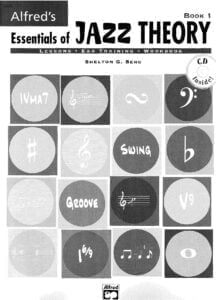 |
Alfred’s Basic Piano Library Essentials Of Jazz Theory Book 1 |
| Alfred’s Basic Piano Library Essentials Of Jazz Theory Book 3 |
 |
Alfred’s Basic Piano Library Essentials Of Jazz Theory Book 3 |
| Alfred’s Basic Piano Library Lesson Book Level 3 |
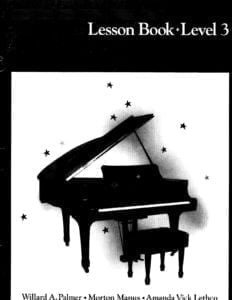 |
|
| Alfred’s Teach Yourself To Play Guitar Everything You Need To Know To Start Playing The Guitar! (with Tablature) |
 |
|
| Alfred’s Essentials Of Music Theory, Complete (Andrew Surmani, Karen Farnum Surmani Etc.) Sheet Music |
 |
|
| Ali and Nino (Dario Marianelli) | ||
| Alice Coltrane Monument Eternal (book) The Music of – by Franya J. Berkman |
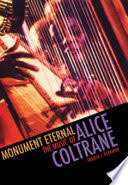 |
|
| Alice In Chains Dirt Full album Guitar TAB with lyrics |
 |
Alice In Chains Dirt Full album Guitar TAB with lyrics |
| Alicia Keys – A Woman’s Worth | Alicia Keys – A Woman’s Worth | |
| Alicia Keys – A Womans Worth | ||
| Alicia Keys – And I | ||
| Alicia Keys – As I Am (Songbook) |
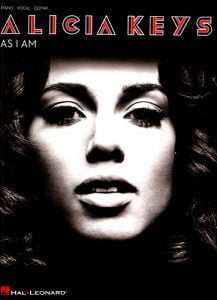 |
ALICIA KEYS SONGBOOK |
| Alicia Keys – Butterflyz | ||
| Alicia Keys – Diary | ||
| Alicia Keys – Fallin | ||
| Alicia Keys – Fallin’ (Sheet Music – Piano) | Alicia Keys – Fallin’ (Sheet Music – Piano) | |
| Alicia Keys – Goodbye | ||
| Alicia Keys – How Come You Dont Call Me | ||
| Alicia Keys – If I Aint Got You |
 |
|
| Alicia Keys – Impossible | ||
| Alicia Keys – Never Felt This Way | ||
| Alicia Keys Diary Song Book |
 |
ALICIA KEYS DIARY SONGBOOK |
| Alicia Keys The Element Of Freedom Songbook |
 |
ALICIA KEYS |
| Alicia Keys Unplugged |
 |
ALICIA KEYS UNPLUGGED |
| Alkan, Charles Valentin Concerto For Solo Piano 1st Movement Opus 39 No. 8 In G Minor (Piano Solo Reduction) |
 |
|
| All 4 One – I Can Love You Like That | ||
| All 4 One – I Swear | ||
| All American Folk Complete Sheet Music Editions Volume One (Creative Concepts Publishing Corp.) |
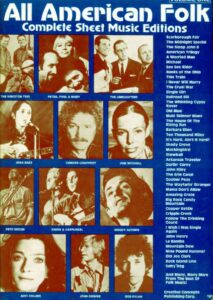 |
All American Folk Complete Sheet Music Editions Volume One (Creative Concepts Publishing Corp.) ( |
| All Blues For Jazz Guitar Comping Styles Chords And Grooves by Jim Ferguson Guitar Tablature |
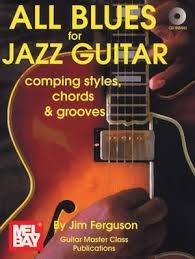 |
All Blues For Jazz Guitar Comping Styles Chords And Grooves by Jim Ferguson Guitar Tablature |
| All Blues Soloing For Jazz Guitar – Jim Gerguson Play Along (Book + audio MP3) with Tablature |
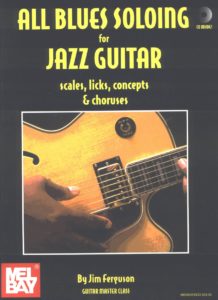 |
All Blues Soloing jazz guitar |
| All By Myself – Celine Dion (Musescore File).mscz | ||
| All I Want For Christmas Is You (Musescore File).mscz | ||
| All Of Me – Jazz Standard Stride Piano arr. Gerald Marks and Seymour Simons | All of me (Gerald Marks and Seymour Simons) Jazz Piano Solo arr. sheet music | |
| All Of Me – Jazz Standard Stride Piano Arr. Gerald Marks And Seymour Simons (Musescore File).mscz | ||
| All Of Me Fingerstyle Guitar TABs By Lucas Brar Jazz Standard (Gerald Marks and Seymour Simons) | All Of Me Fingerstyle Guitar TABs By Lucas Brar Jazz Standard | |
| All Of Me Gerald Marks & Seymour Simons 1931 Jazz Standard (Vintage sheet music) | All Of Me Gerald Marks & Seymour Simons 1931 Jazz Standard (Vintage sheet music) | |
| All Of The Jazz Standard Vol. 1 |
 |
All Of The Jazz Standard Vol. 1 |
| All Of The Jazz Standard Vol. 2 |
 |
All Of The Jazz Standard Vol. 2 |
| All Saints – Never Ever | ||
| All Sondheim Vol I Music and lyrics |
 |
All Sondheim Vol I Music and lyrics |
| All Sondheim Vol II Music and lyrics |
 |
All Sondheim Vol II Music and lyrics |
| All Sondheim Vol III Music and lyrics |
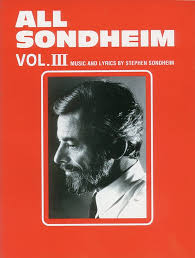 |
All Sondheim Vol III Music and lyrics |
